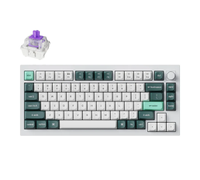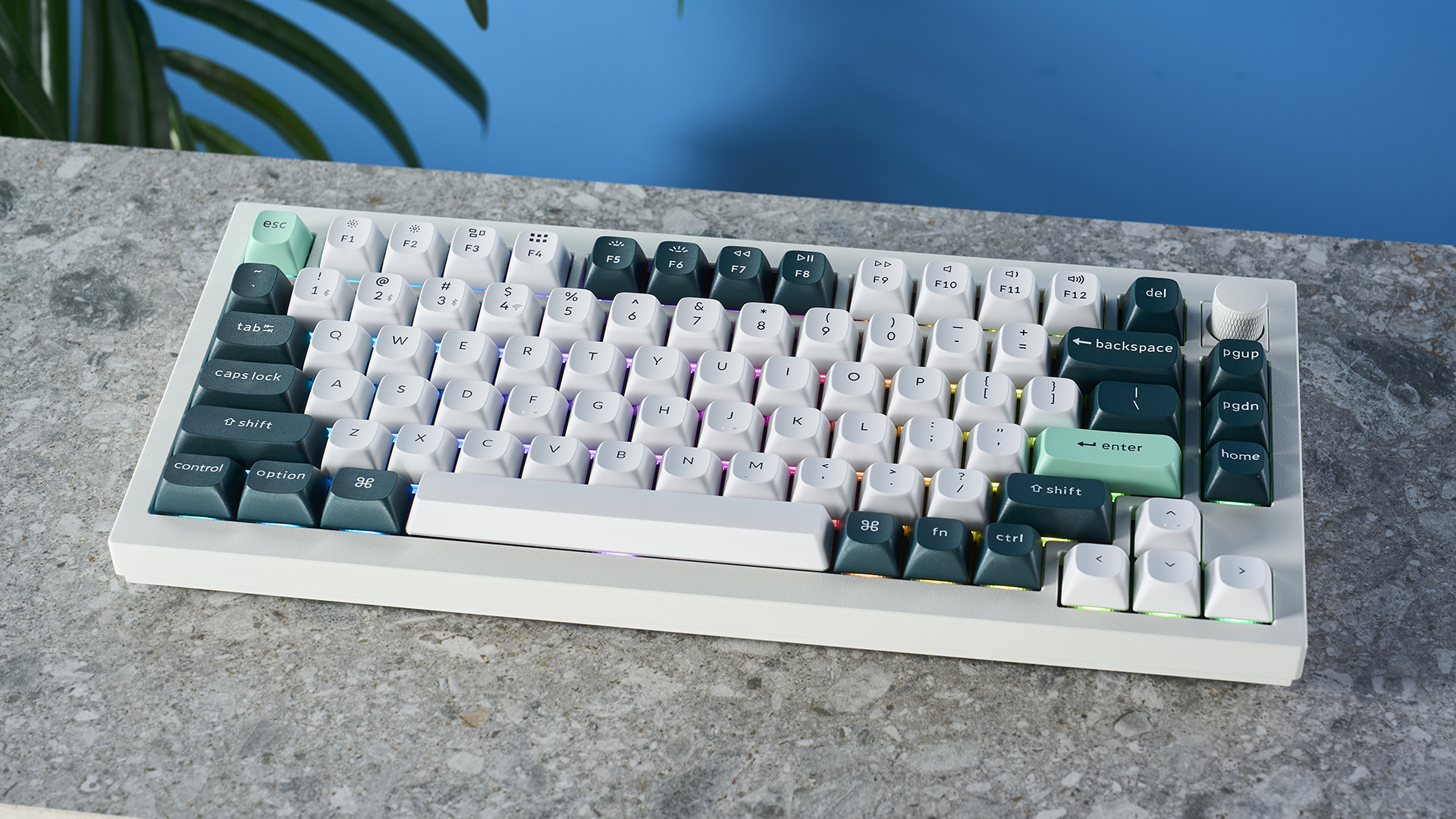
I review some of the best gaming keyboards money can buy for a living, and its far too common that attaching the adjective 'gaming' to a keyboard is an excuse to bump up the price while adding very little in way of actual performance features. I like RGB lighting as much as the next person, but come on!
I'm the sort of person who gets a little too annoyed at myself if I can't clutch a round in ''Counter Strike 2'', or have the perfect colony stolen from me in ''Stellaris'', and I really hate to blame my equipment. However, often my keyboard does much too little to give me any advantage whatsoever.
This is why Hall Effect keyboards are my favorite to review — they are truly game-changing, and I just tested the best I've ever used, the Keychron Q1 HE. What's odd is, it isn't even an actual gaming keyboard, but a productivity board with elite gaming features added in. It's a hybrid that's putting gaming boards to shame, and I can't put it down.
Magnetic attraction
Some of my favorite keyboards to review are the ones that have Hall Effect switches. This is a technology that uses a magnet rather than a physical mechanism to register the press of a key, which creates a plethora of possibilities for customization. For gamers, this means that sensitivities that are not possible on a traditional switch are now available, as well as some exciting new features like Rapid Trigger, Snap Tapping and multiple actuation points.
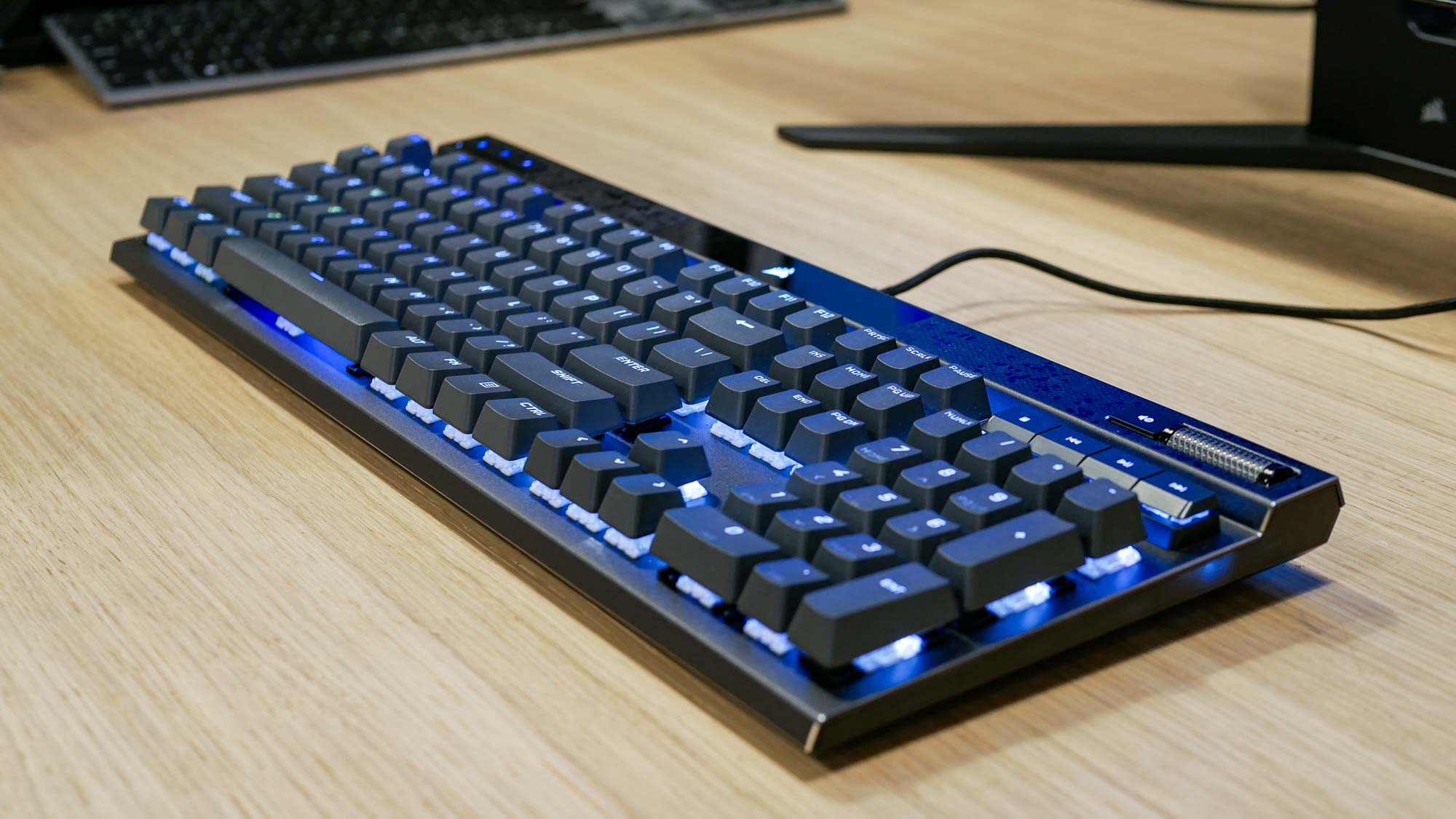
This tech doesn't come cheap. Expect to spend over $150 for most Hall Effect keyboards, with the most expensive reaching the mid-$200s. Take the Corsair K70 Max, for example. A great keyboard, but one that is just too expensive to consider for most people — if I am paying over $200 for any computer accessory, its got to be good.
So when I came across the Q1 HE for just over $200, but with a fully metal case and Hall Effect switches? I just had to give it a shot, price aside.
Enter Keychron
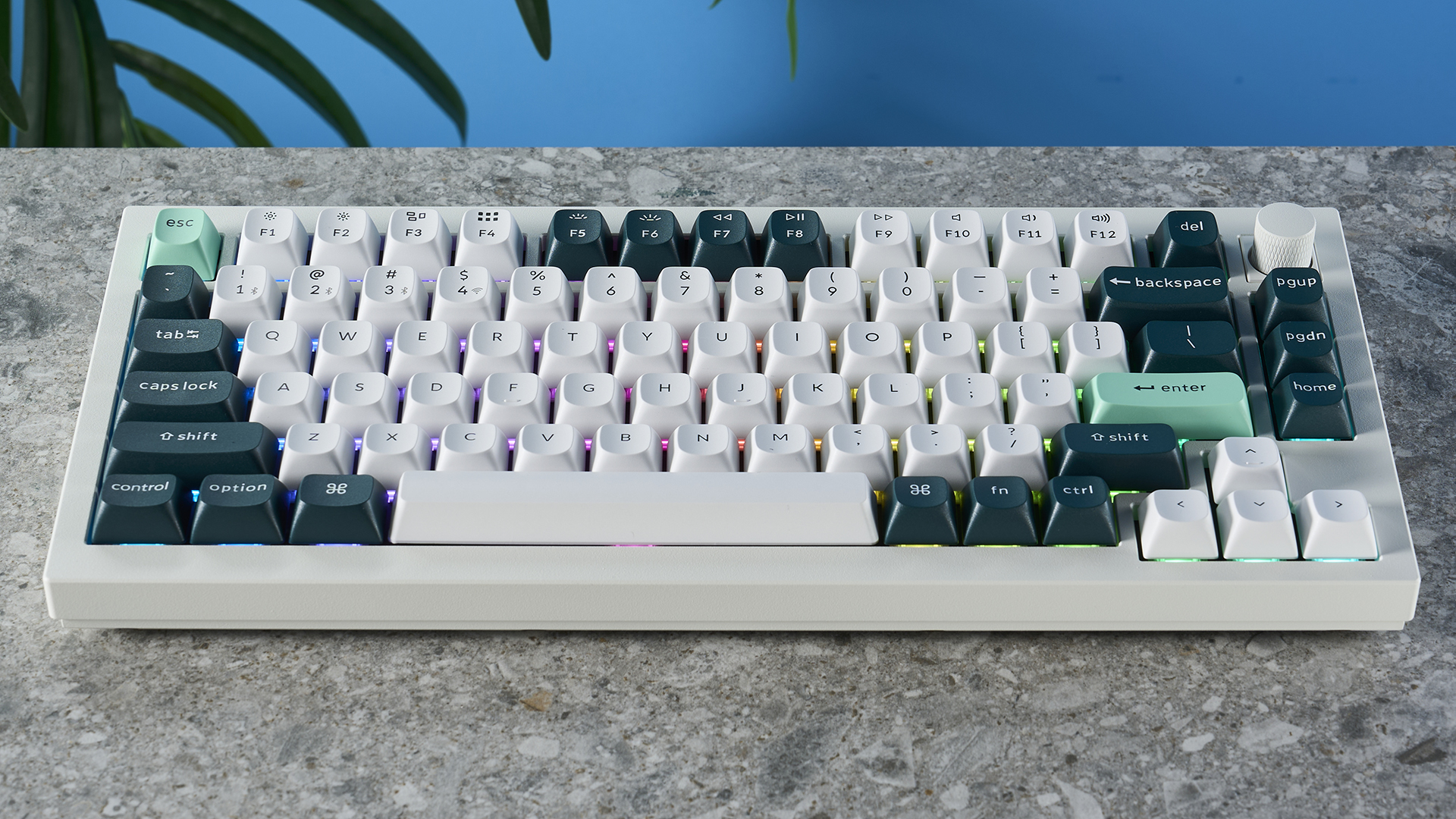
I'm glad I gave it a try, because this might be my dream keyboard come true.
Starting with the looks, the model I tested has a beautiful white aluminum case, with green-accented keycaps. It is a thing to behold. Laying my fingers on the keys for the first time was like seeing an old friend again. Despite having a different type of switch to the mechanical switches in my favorite sounding keyboards, the sound dampening and case acoustics of the Q1 HE provide a distinct, light tappy sound that I have fallen in love with, and which we've seen on other Keychron boards like the excellent Keychron Q3 Max ($214) and Keychron Q1 Pro ($234).
Keychron Q1 HE: $239 @ Keychron
The best Hall Effect keyboards I have ever used, the Keychron Q1 HE combines an impactful collection of high-end gaming features. On top of this, its full metal case gives it a truly epic quality and high durability. There is something here for everyone, and particularly those who want a great-sounding, soft-feeling keyboard that stands out from the crowd. It's well deserving of the 4.5 stars I awarded it in my Keychron Q1 HE review.
It wasn't just the sound that was good — I managed to hit one of my fastest typing speeds on the Q1 HE, too. After adjusting the actuation, I was able to get my accuracy up above average, too. It was fantastic for getting work done, which I usually don't expect from a gaming keyboard: for example, as much as I liked using the SteelSeries Apex Pro Mini ($239) in competitive games, the typing experience was certainly lacking and I only managed to hit a pitiful 78 word per minute on that, compared to 90 WPM on the Q1 HE.
The best of both worlds
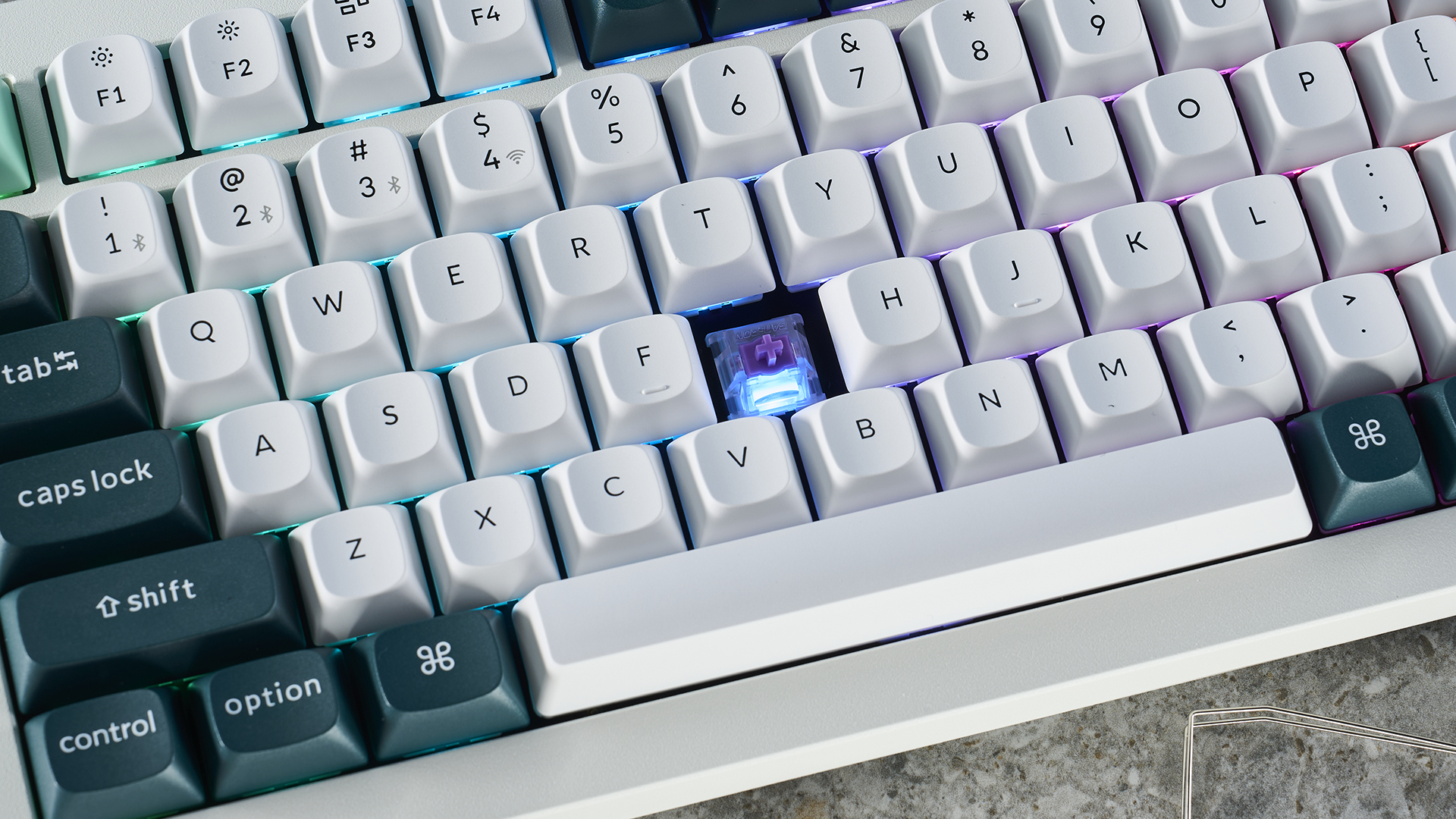
After throwing myself into a game, and then checking out the extensive customization options available to me, I realized that the Q1 HE is a truly special keyboard. It isn't just one of the best productivity keyboards I have used, but the gaming features are on par, or even beyond, what I have seen on industry-leading Hall Effect keyboards like the SteelSeries Apex Pro Mini and Corsair K70 Max.
The possibilities are mind-blowing. Take the quad actuation points setting, for example. While I have experimented before with double actuation points, such as on the Apex Pro, the Q1 HE allows you to have four actions bound to the same key. This has a wealth of possibilities, but you could go ahead and set walk, sprint, crouch and prone to the exact same key if you wanted to. Name another keyboard that lets you do that (except the Keychron K2 HE).
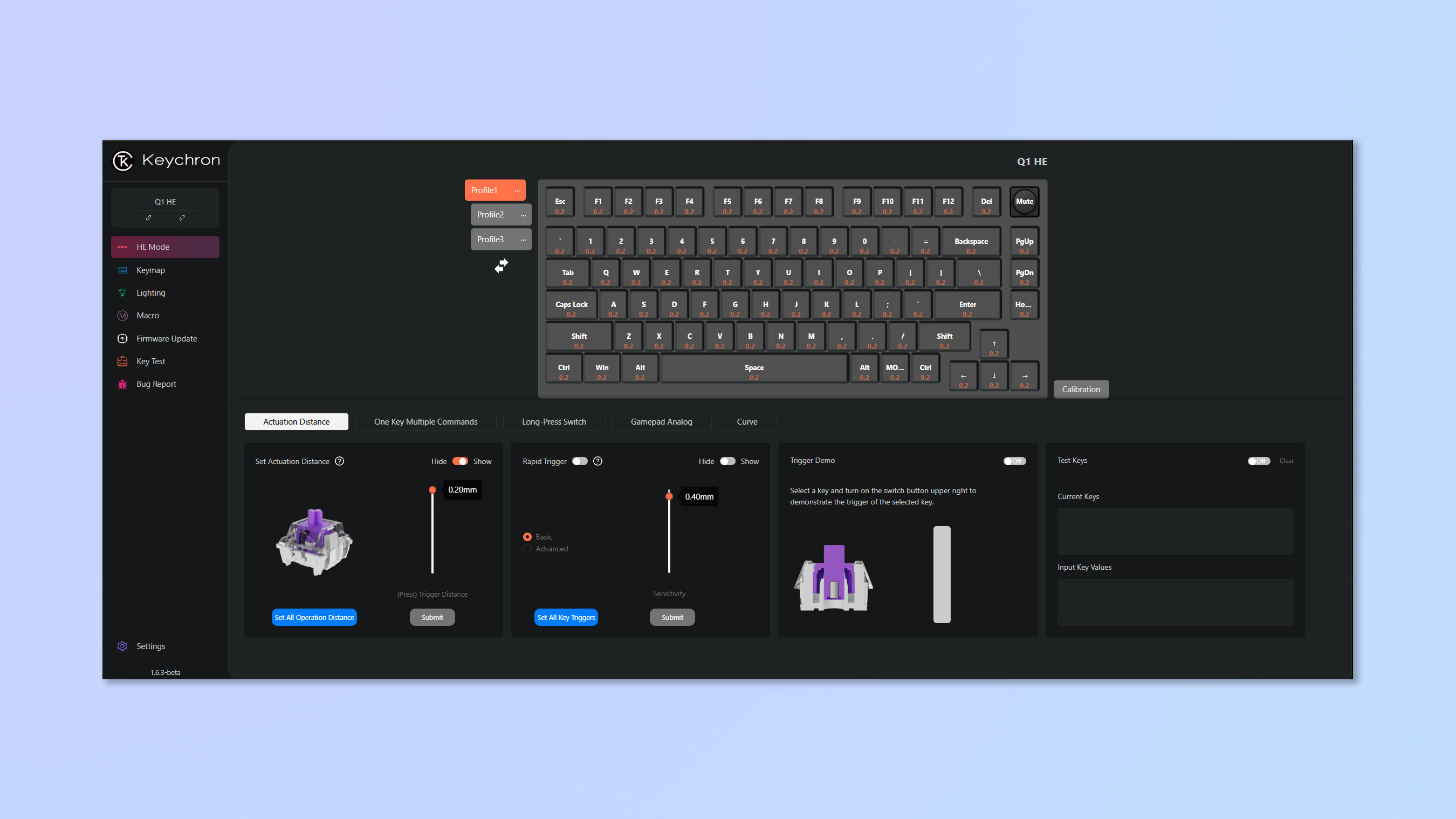
The Q1 HE also offers last key prioritization and rapid trigger. The former means that when two buttons are pressed, the keyboard will prioritize the most recent key input. This means that in games, movement will be more responsive, particularly when you are rapidly inputting multiple quick strafes in succession.
Button-mashers, rejoice. Rapid trigger is a great feature that allows a key to be pressed again once it has been released, even if it has not fully ''reset''. In practice, this allows you to input keys in quicker succession, whether you are spamming your ultimate ability in League of Legends, or waiting for your cooldown in World of Warcraft. It works excellently alongside last key prioritization — these are both absolutely killer gaming features, which feel like borderline cheating when taking advantage of them in FPS games in particular.
The best choice for you?
Remember when I said that Hall Effect doesn't come cheap? Well, that's not strictly true. It's true that at $239, its only about $10-20 more than your typical metal keyboard from Keychron, and that this is roughly the going rate for other metal Hall Effect keyboards — the GMMK 3 HE, for example, retails for $239.
However, not all elite Hall Effect keyboards cost that much. Indeed, the main reason why you might want to skip the Q1 HE is the fact that Keychron are offering another 75% Hall Effect keyboard for just $130, a mind-blowing deal considering the competition. This is of course the Keychron K2 HE, currently our best gaming keyboard.
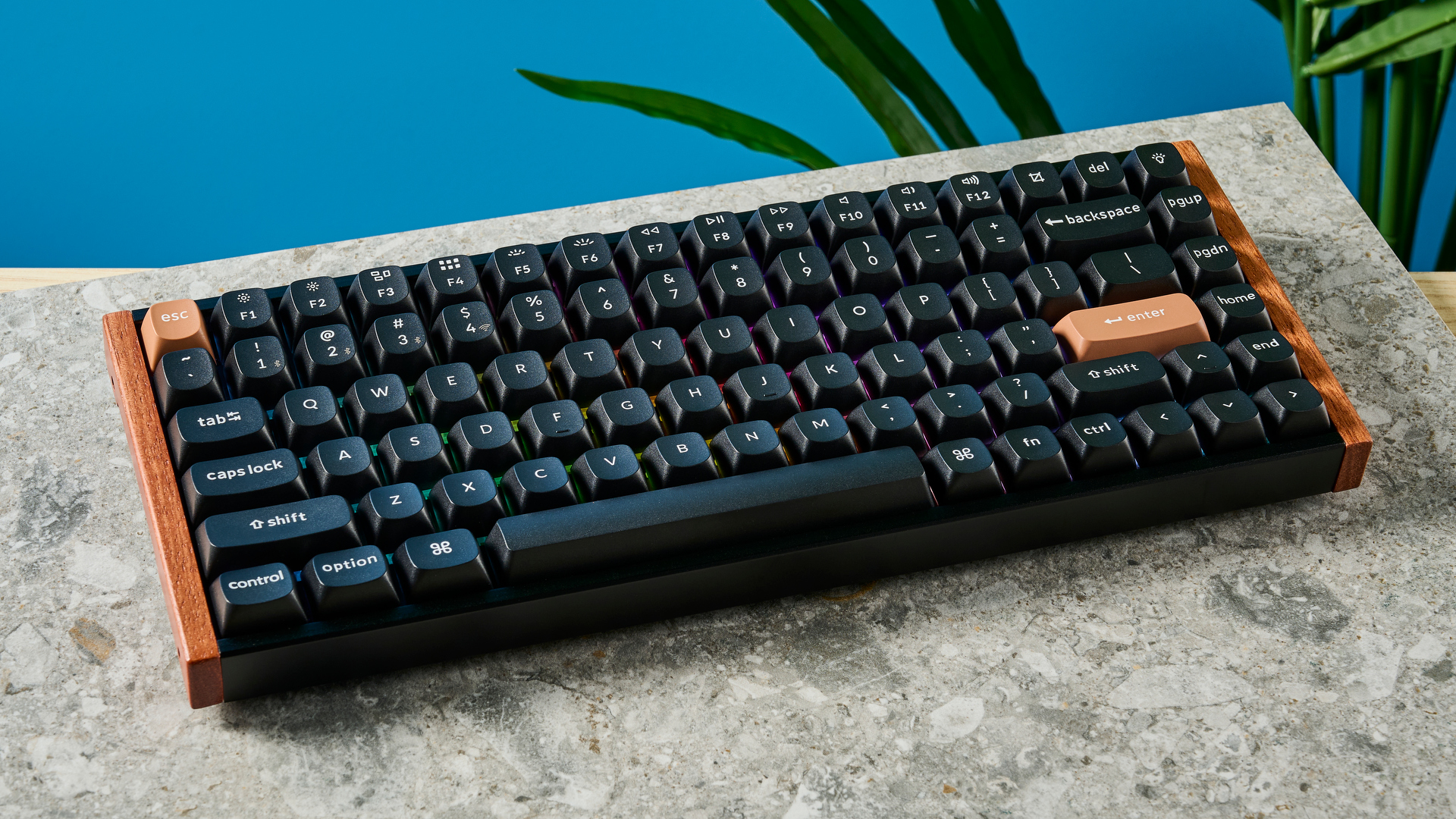
For me though, the metal charm of the Q1 HE has won my heart — even if it does cost an extra $110. It's safe to say that the Keychron Q1 HE will remain at my desk for the foreseeable future.
More from Tom's Guide
Sign up to get the BEST of Tom's Guide direct to your inbox.
Get instant access to breaking news, the hottest reviews, great deals and helpful tips.

Eve is a Staff Writer on the Reviews team at Tom’s Guide. Her expertise centers around computing, and she loves testing out the very best high performance peripherals to help you make the right choice. With her experience working in IT and a love for gaming, she has an eye for function and efficiency— this is reflected in the time spent building and customizing her own desktop PCs. In her downtime, Eve is always on the lookout for new tech to give her a competitive edge in the latest games, or a boost in her daily productivity.
